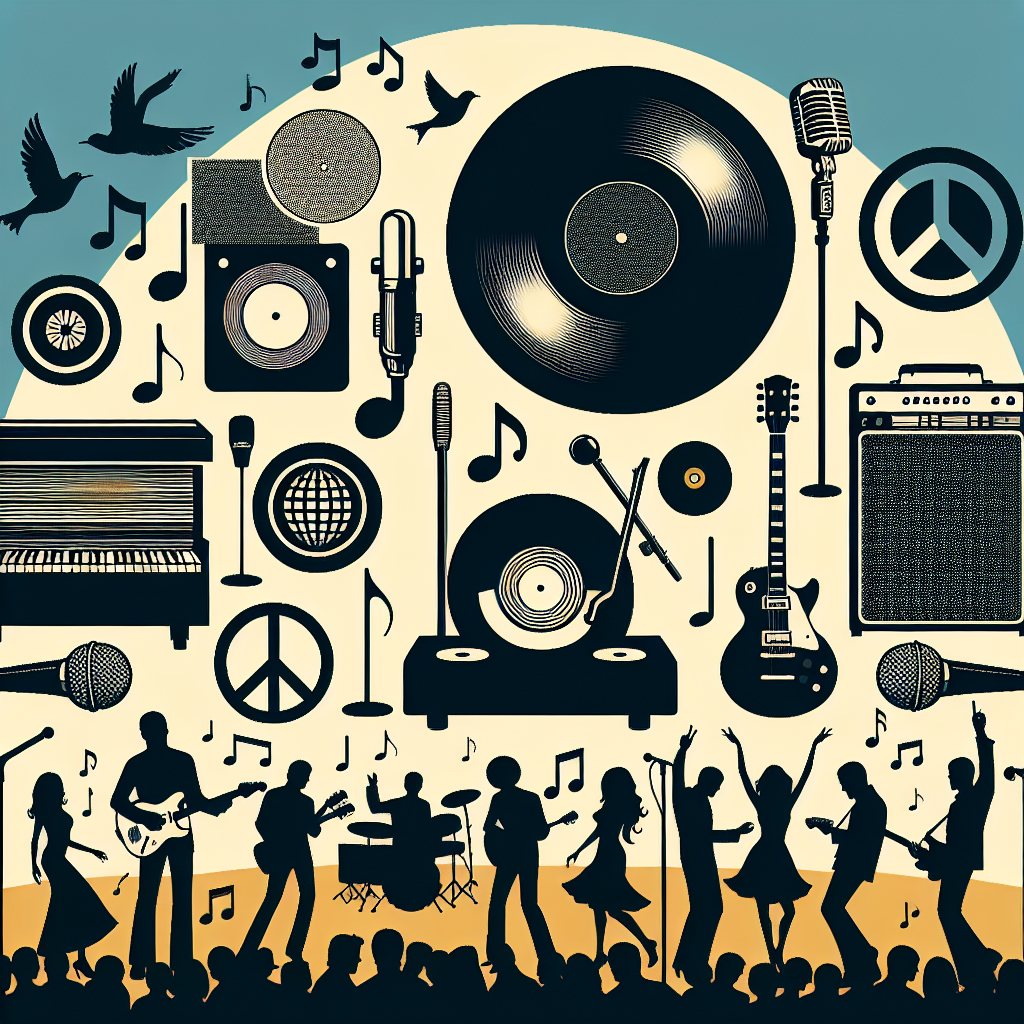The 1960s and 1970s were a time of immense change and upheaval in American society. From the civil rights movement to the Vietnam War, from the sexual revolution to the rise of feminism, these decades saw a cultural revolution that transformed the country in profound ways. And at the heart of this revolution was music.
Music has always been a powerful force for social change, but in the 60s and 70s it took on a new significance. Artists like Bob Dylan, The Beatles, Joni Mitchell, and Marvin Gaye used their music to speak out against war, racism, and injustice. Their songs became anthems for a generation that was questioning authority and challenging the status quo.
Politicians and policymakers may have been making decisions that shaped the world, but it was musicians who were shaping hearts and minds. Songs like “Blowin’ in the Wind,” “Imagine,” and “What’s Going On” captured the spirit of the times and inspired people to take action. Music became a rallying cry for social change, a soundtrack for protest marches and sit-ins.
But music wasn’t just a tool for political activism – it also played a crucial role in shaping culture and fashion. The rock ‘n’ roll sound of bands like The Rolling Stones and Led Zeppelin influenced everything from hairstyles to clothing choices. Hippies embraced folk music as part of their countercultural lifestyle, while disco brought glitz and glamour to dance floors across the country.
Technology also played a key role in shaping the music of this era. The invention of electric guitars, synthesizers, and multitrack recording allowed artists to experiment with new sounds and styles. The result was an explosion of creativity that gave birth to genres like psychedelic rock, funk, and punk.
Looking back on this period in history, it’s clear that music was more than just entertainment – it was a force for social change and cultural transformation. It brought people together across racial and generational divides, creating a sense of unity and solidarity that transcended politics or ideology.
Today, we can still hear echoes of the 60s and 70s in contemporary music. Artists like Beyoncé, Kendrick Lamar, Lady Gaga continue to use their platform to address issues like racism, sexism, and LGBTQ rights. They are carrying on the legacy of those who came before them by using their music as a tool for social change.
As we look back on this pivotal moment in history, let’s remember the power of music to unite us in our shared humanity. Let’s celebrate the artists who dared to speak truth to power through their songs. And let’s continue to use music as a force for positive change in our world today.


Get involved!
Comments